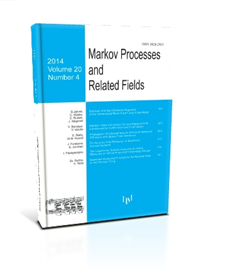Risky Investment for Insurers and Sufficiency Theorems for the Survival Probability
T. Belkina
2014, v.20, Issue 3, 505-525
ABSTRACT
We consider two models of an insurance company which can invest its surplus in a risk free asset and in a risky asset with the price following the geometric Brownian motion. In the first model the surplus without investment is governed by the classical Cramer - Lundberg risk process. In the second model it is governed by the risk process with stochastic premiums. For the case when the insurance company invests in the risky asset only at a fixed leveraging level, we prove so called sufficiency theorems for the survival probability. These theorems state that the solutions of singular problems for linear integro-differential equations (IDEs), generated by infinitesimal operators of the resulting surplus processes, define the corresponding survival probabilities. The sufficiency theorems allow us to use a unified approach, based on the existence theorems and martingale methods. This approach also eliminates need to prove twice continuously differentiability of the survival probability as well as to use upper and lower bounds evaluation to specify asymptotic representations for the ruin probability. We also give a brief discussion of the papers, where the existence theorems for the considered problems in the case of exponential claim and premium distributions were proved. As a result, the solving of above singular problems for IDEs leads to calculation of the survival probability as a function of the initial surplus on all nonnegative semi-axis and to obtaining of its asymptotic representations for large and small values of the surplus. We also demonstrate an application of some results concerning the asymptotic expansions at zero for linear IDE solutions to study optimal investment problem with limited leveraging level for the Cramer - Lundberg model.
Keywords: stochastic control,classical risk process,risk process withstochastic premiums,sufficiency theorem,ruin probability,investment constraints
COMMENTS
Please log in or register to leave a comment

